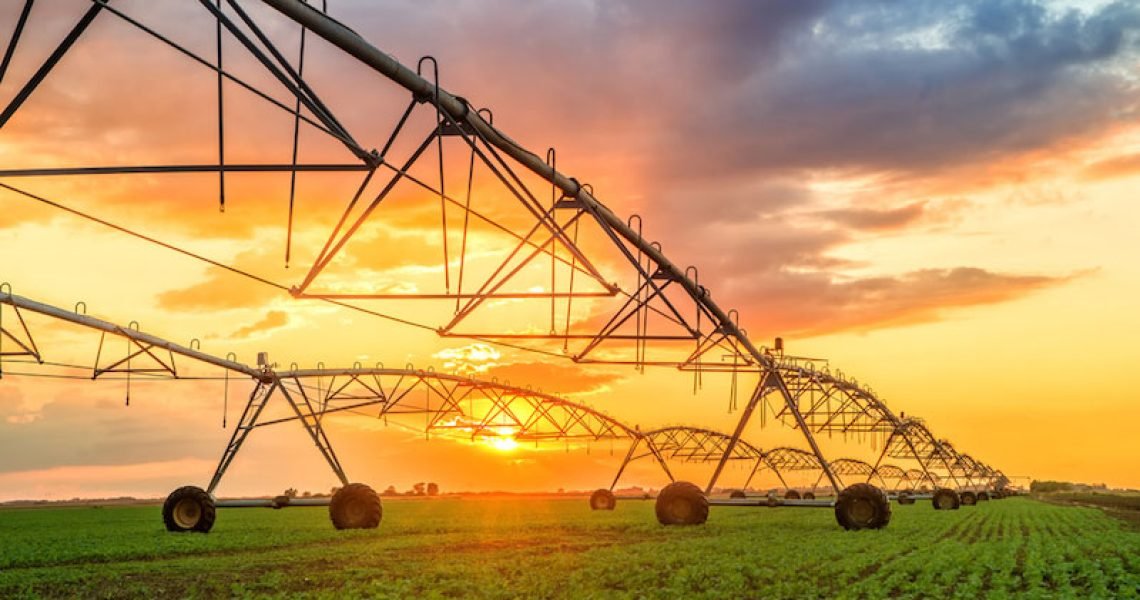The Role of Steel in Agricultural Equipment
Steel’s versatility, strength, and durability make it an ideal material for manufacturing agricultural equipment. From tractors and plows to harvesters and irrigation systems, steel plays a crucial role in ensuring these machines can withstand the demanding environments of farms. Here’s why steel is indispensable in agriculture:
- Durability and Strength
Agricultural machinery must endure harsh conditions—constant exposure to soil, water, extreme temperatures, and mechanical wear and tear. Steel is corrosion-resistant and offers the strength to withstand such conditions, ensuring longevity. This resilience reduces the need for frequent replacements, saving farmers significant costs in the long term. - Cost-Effectiveness
While there are alternative materials like plastic and aluminum, they do not offer the same durability as steel. Even though the initial cost of steel-based equipment might be higher, the long-term benefits of fewer repairs and replacements make steel more cost-effective for farmers. In the competitive agricultural sector, cost savings can significantly impact profit margins. - Sustainability
Steel is highly recyclable, which aligns well with the growing emphasis on sustainable farming practices. Farmers and manufacturers can reuse and recycle steel without compromising its strength or quality. Using steel in agricultural machinery not only supports productivity but also contributes to reducing the carbon footprint of farming operations. - Precision and Customization
Steel is ideal for custom fabrication, enabling manufacturers to produce specialized farming tools and machinery. Modern agricultural equipment often requires specific designs to meet the unique needs of various crops and farming methods. Steel’s malleability allows manufacturers to customize these machines, improving their efficiency and effectiveness on the farm.
Steel in Agricultural Infrastructure
Agriculture isn’t just about machinery; it also requires robust infrastructure to store crops, livestock, and farming supplies. Steel has transformed the way farmers approach storage solutions, fencing, and even irrigation systems.
- Steel Buildings and Storage Solutions
Steel buildings are commonly used for barns, grain storage, and other farm structures. These buildings offer unmatched durability, low maintenance, and resistance to weather conditions. Steel-framed barns and storage units protect valuable crops from pests, moisture, and other damaging factors, ensuring that farmers can store their produce safely for longer periods. - Grain Silos and Feed Storage
Grain silos are an integral part of any farm’s storage system, and steel is the material of choice for constructing these silos. Steel silos offer superior protection against pests, rodents, and weather conditions. Moreover, steel’s high tensile strength allows for the construction of larger, more efficient silos that can store massive quantities of grain. Feed storage units made from steel provide similar benefits, ensuring that livestock feed is kept in optimal condition. - Steel Fencing
Livestock farming also benefits from the use of steel. Fencing made from steel offers durability and strength that surpasses other materials like wood. Steel fencing is more resistant to corrosion, extreme temperatures, and the pressure of livestock. This durability reduces maintenance costs and ensures that livestock remain safe and secure. - Irrigation Systems
In agriculture, irrigation systems are essential for maintaining the health and productivity of crops. Steel plays a key role in constructing durable irrigation pipes and systems that can withstand constant exposure to water and the elements. The durability of steel ensures that irrigation systems remain operational for years without major repairs or replacements.
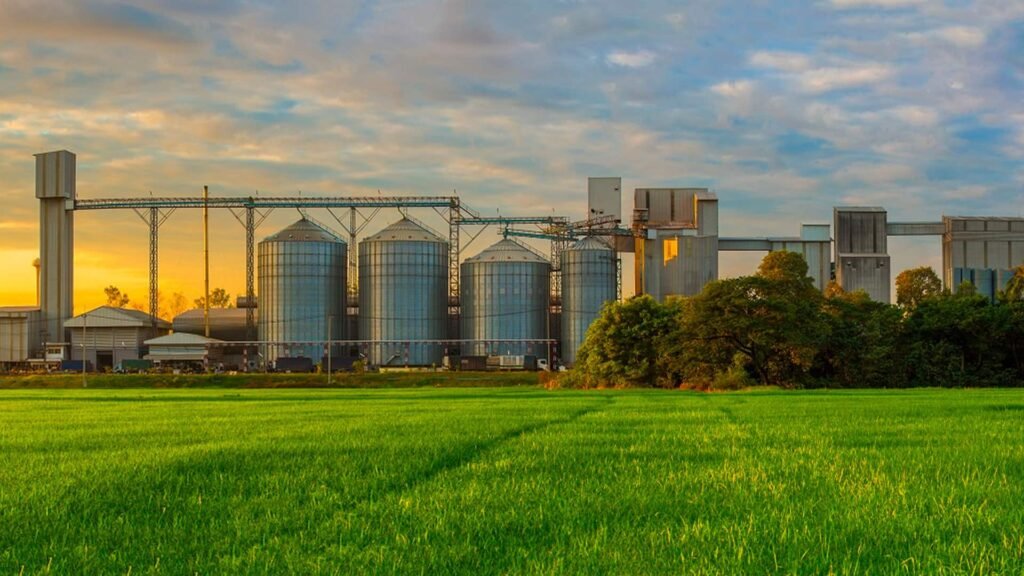
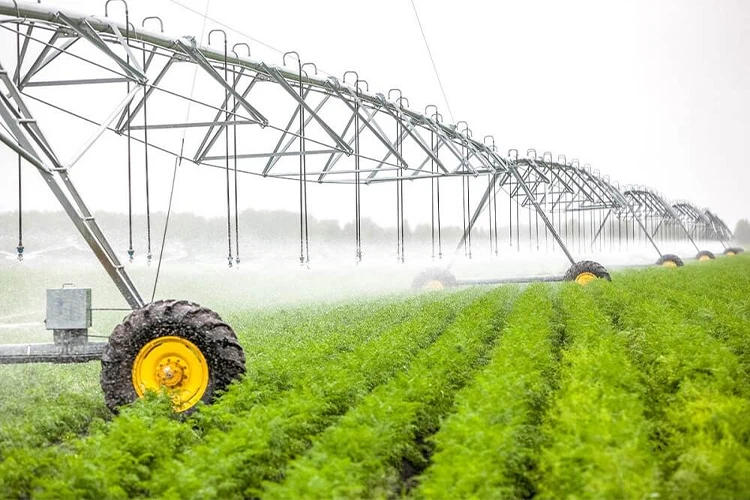
Types of Steel Used in Agriculture
Not all steel is the same, and different types are used in various aspects of agriculture. Each type of steel brings unique properties suited for specific farming needs:
- Stainless Steel
Stainless steel is highly resistant to corrosion, making it perfect for applications in areas where equipment is exposed to moisture, such as irrigation systems, feed storage units, and grain silos. Its high strength-to-weight ratio ensures that machinery made from stainless steel is robust yet lightweight, making it easier to handle and operate. - Carbon Steel
Carbon steel is one of the most commonly used steels in agricultural machinery. Known for its toughness and durability, it is often used in the construction of plows, tillers, and other soil-working equipment. Carbon steel is also used in the making of structural components for farming buildings, ensuring that they can withstand heavy loads and adverse conditions. - Galvanized Steel
Galvanized steel, coated with a layer of zinc, provides added protection against corrosion, especially in outdoor applications like fencing and gates. This type of steel is commonly used in areas exposed to rain, soil, and chemicals, where regular steel would corrode much faster. Its corrosion-resistant properties make galvanized steel ideal for long-term use in agricultural settings.
The Benefits of Steel Fabrication in Agriculture
Steel fabrication is a key process that allows farmers to access customized and highly efficient equipment and infrastructure. With the advancements in steel fabrication techniques, agricultural machinery can now be built with extreme precision, resulting in increased efficiency and productivity on the farm.
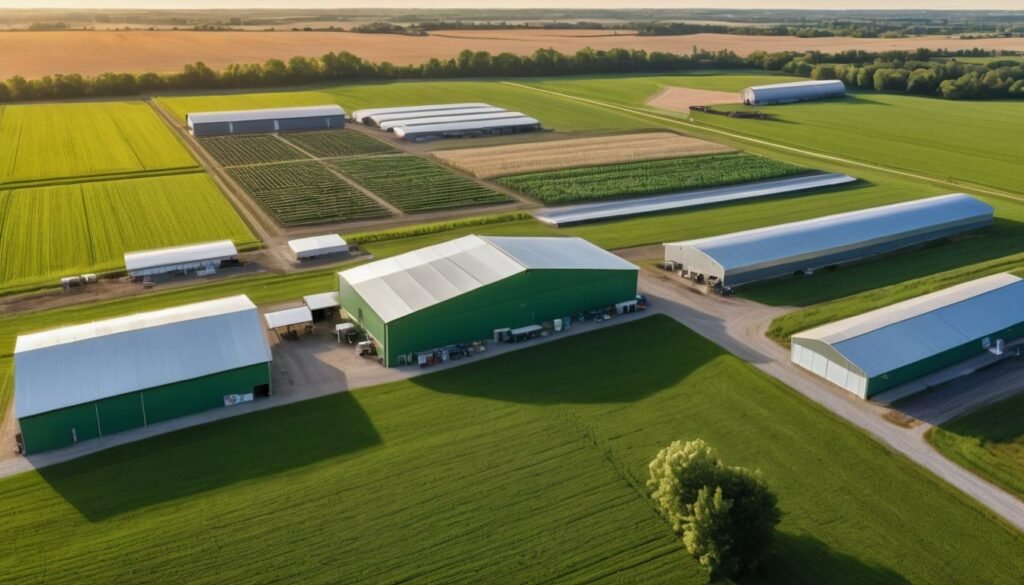
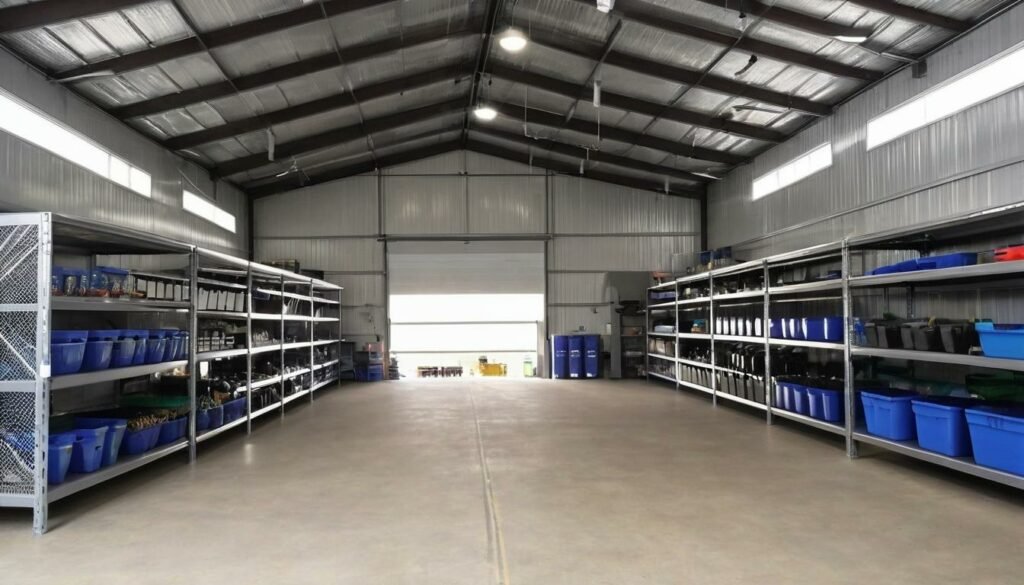
- Customization for Specific Needs
Each farm is unique, and so are its equipment requirements. Steel fabrication allows for tailored solutions that meet specific agricultural needs. Whether it’s a custom plow designed to work with a particular type of soil or specialized grain storage units, steel fabrication offers farmers the flexibility to enhance their operations. - Technological Integration
With advancements in technology, modern farming equipment is becoming more sophisticated, often incorporating GPS systems, automated controls, and sensors. Steel fabrication allows for the seamless integration of these technologies into farming equipment, enabling smart farming practices that boost efficiency and reduce waste. - Enhanced Productivity
Farming operations rely heavily on machinery and infrastructure to meet production targets. Steel’s strength, durability, and adaptability make it the best material for fabricating equipment that can handle the pressures of modern farming. Whether it’s handling heavy loads, resisting corrosion, or maintaining precision in harsh conditions, steel ensures that equipment operates at peak performance.
Lux Metal: Your Partner in Agricultural Steel Solutions
At Lux Metal, we understand the unique demands of the agricultural sector and provide top-quality steel solutions to meet these needs. Whether you’re looking for durable farm machinery, custom storage solutions, or reliable fencing, we have the expertise and state-of-the-art facilities to deliver exceptional results.
Our range of services includes custom steel fabrication, where we tailor products to your specific agricultural requirements. We use high-quality materials, including stainless steel, carbon steel, and galvanized steel, to ensure that our products are not only robust but also cost-effective in the long run.
Are you ready to upgrade your agricultural infrastructure and machinery with the best steel solutions? Contact Lux Metal today to discuss your specific needs. Let us help you achieve maximum efficiency on your farm with our customized steel products and expert services. Visit us at www.luxmetalgroup.com for more information.
By choosing Lux Metal, you are investing in durable, sustainable, and reliable solutions that will enhance the productivity and profitability of your farming operations.
References:
Metal Fabrication: The Impact on Agriculture Industry
The Best Metal Used for Agriculture Parts and Equipment

